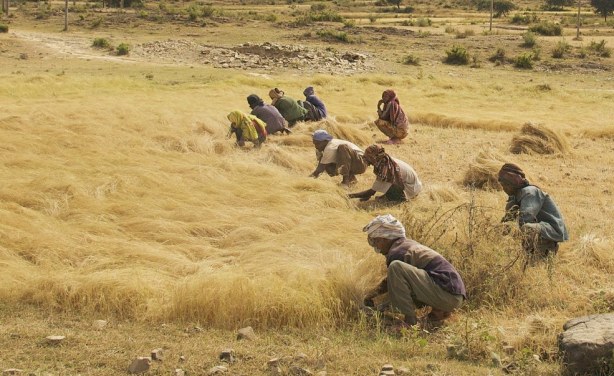 |
| A cotton packer and her son rest between shifts compressing cotton into 200 kilogram bales at a cotton gin on the outskirts of Warangal, Telangana. Many former farmers are migrating to cities where they can make higher wages and find new opportunities, but the city also has higher costs of living and fewer ties to family and friends |
Suicide rates among Indian farmers remain high, accounting for more than 12,500 deaths in the country in 2015, according to a government report. While many have blamed climate change for farmers' distress, the issue is likely much more complex.












